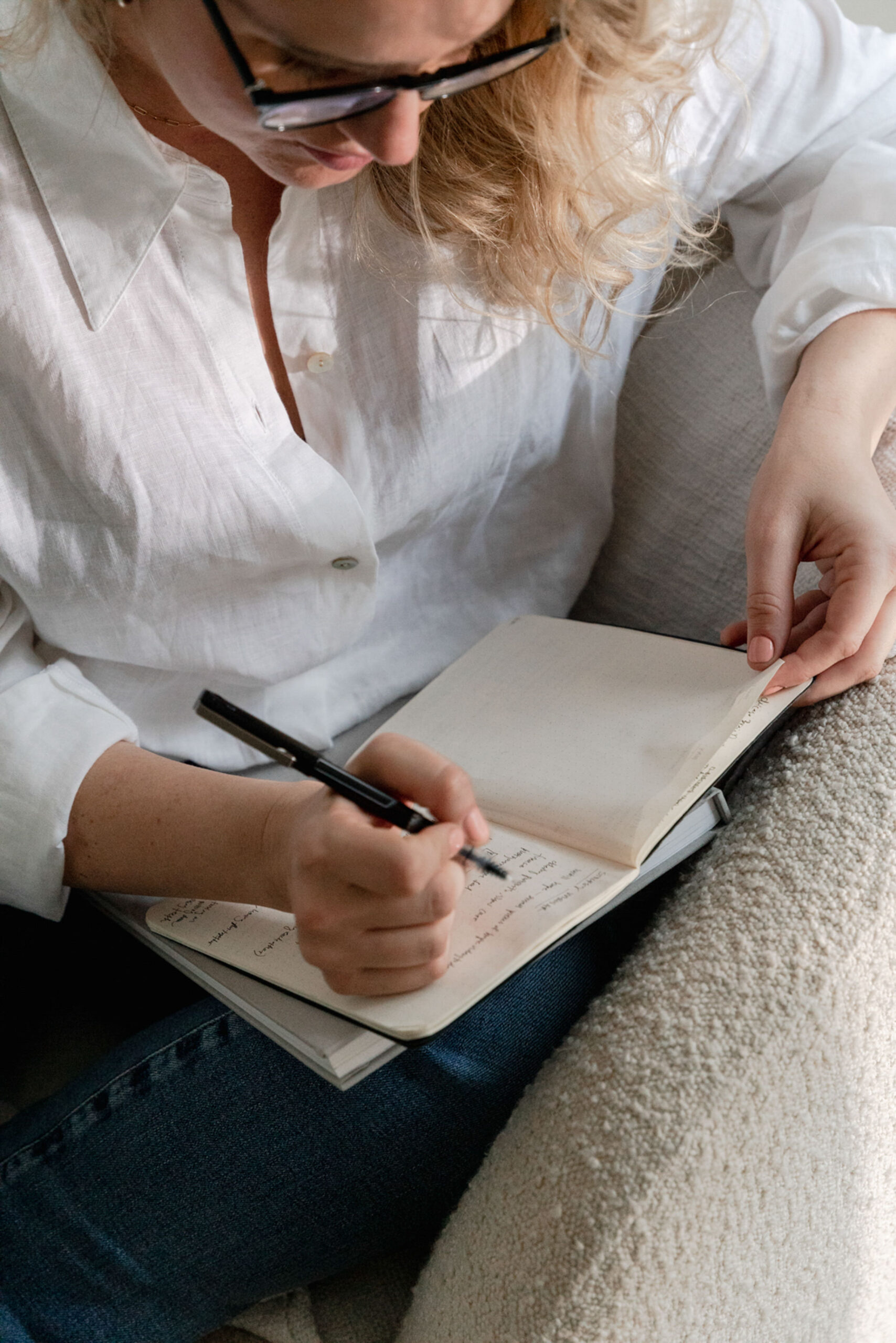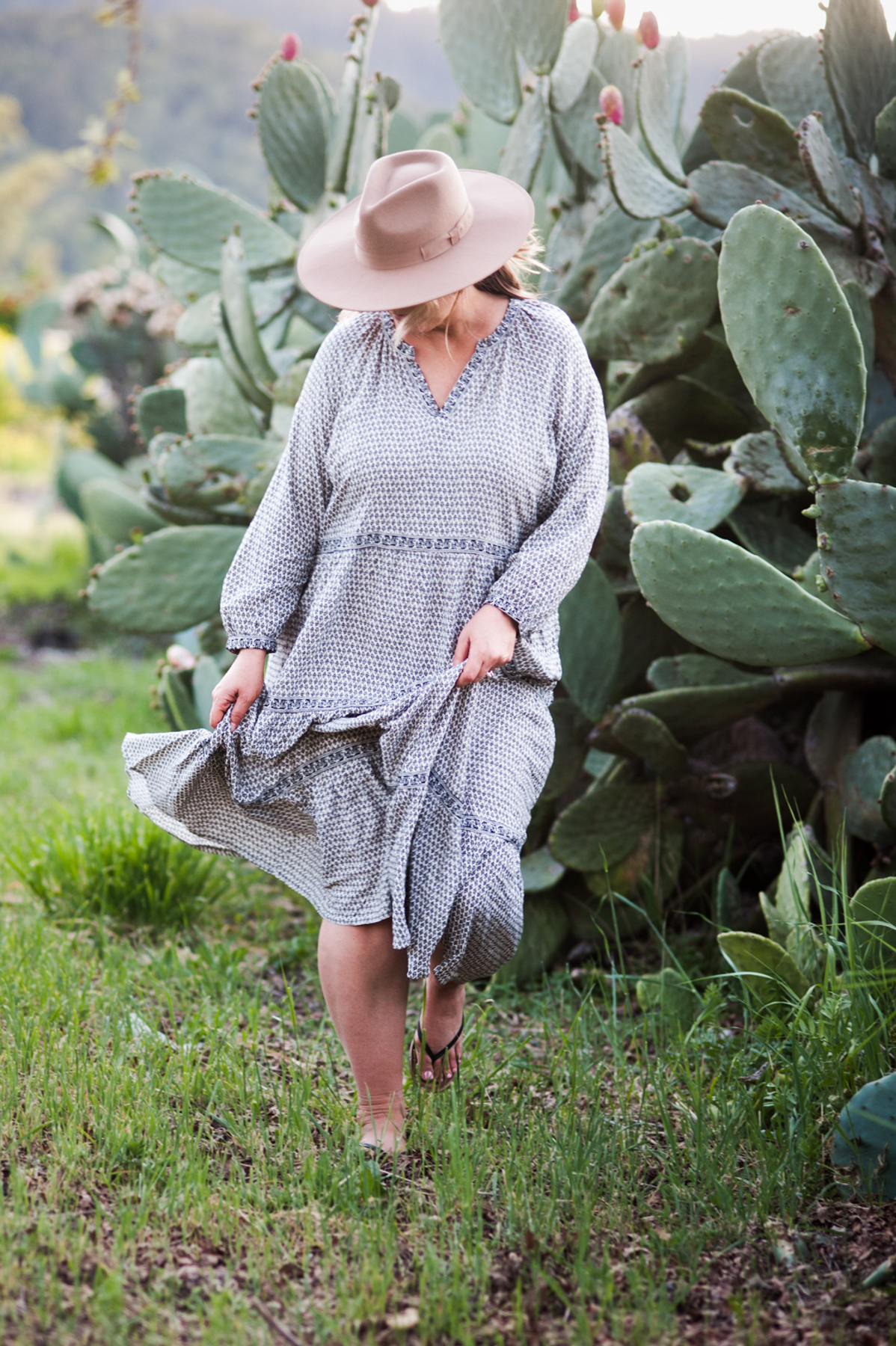Ever found yourself stretched too thin, saying “yes” to everything and regretting it later? You’re not alone. High-achieving women, especially those who tend to people-please, often sacrifice their well-being for others. In this episode, Nadja Hagen uncovers why embracing the power of “no” isn’t just self-care – it’s a radical act of self-love and confidence that transforms your relationships and empowers your self-worth. Learn why saying no is kinder than saying yes – for yourself and others.
Nadja delves into how saying no protects your energy, helps you build self-respect, and fosters genuine connections with others. She also shares insights on how your boundaries can inspire those around you, prevent resentment from building, and even empower others to grow by encouraging them to find their own solutions. With practical strategies and inspiring stories, this episode will motivate you to say “no” without guilt and embrace the self-love you deserve. Because saying “no” is sometimes kinder than saying “yes”.
In this episode, Nadja shares how saying “no” is not just about protecting your time; it’s a game-changer for your well-being and confidence. She’ll walk you through the practical ways you can set boundaries without guilt, and why this act of self-love can change the way you show up for yourself and those you care about. With real-life stories and tips that will inspire you to prioritize yourself, you’ll see that saying “no” can be an empowering choice that actually strengthens your relationships and helps others thrive too.
Feeling overwhelmed is not a badge of honor. It’s time to reclaim your time and energy. With practical strategies and insights, this episode will inspire you to honor your needs without guilt.
✨ Download Your Free Resource: Want a step-by-step guide to setting healthy boundaries? Grab Nadja’s “8 Steps to Healthy Boundaries Checklist” at www.nadjahagen.com/boundaries-checklist
Listen to the full episode here:
Click the link below to choose your favorite player to listen to.
https://www.buzzsprout.com/2307122/episodes/16213362
FULL EPISODE TRANSCRIPT:
Nadja Hagen [00:00:09]:
Are you ready to go? From Am I good enough to wait? Is this even good enough for me? Welcome to the Self Love Sessions podcast. I’m Nadja Hagen, your hostess and Self Love coach for all your high achieving women recovering from people pleasing and ready to prioritize yourselves. In this show, I share actionable tips and tools to help you set healthy boundaries and prioritize yourself so that you can intentionally build your life, aligned with your values and finally build mutual, connected relationships without the need to pretend to be someone you’re not. Let’s dive into today’s episode.
Nadja Hagen [00:00:52]:
Hey there. Welcome back to Self Love Sessions.
Nadja Hagen [00:00:56]:
I’m so glad you’re here today because.
Nadja Hagen [00:00:58]:
We are diving into a topic that can be truly a game changer in our daily lives. It’s the Power of Saying no. Today I’m giving you five reasons why it’s kinder to say no sometimes than just saying yes. Have you ever found yourself in a situation where a friend asks for a favor and despite having a million things on your plate, you say yes? Maybe it was helping them move, taking on an extra project at work, or just attending an event you had no desire to go to? You agree out of guilt or the fear of letting them down, only to find yourself stressed and overwhelmed later. Today we gonna explore why saying no can actually be the kinder choice, not just for you, but for everyone involved. It’s about setting boundaries that protect your energy and relationships. I’m excited to share five key reasons why embracing the word no is not.
Nadja Hagen [00:02:06]:
Just necessary, but also incredibly powerful.
Nadja Hagen [00:02:12]:
So the first reason why saying no.
Nadja Hagen [00:02:15]:
Is kinder than saying yes is that protecting your energy protects your relationships. Let’s begin with this point. Protecting your energy we live in a society that often glorifies busyness and being available at all times. We are led to believe that saying yes to every request is a badge of honor, but this mindset can be truly harmful. When you say yes to something that drains you, you’re essentially pouring from an empty cup. Your energy is finite and every time you overcommit, you are using up that precious resource. Think of your energy like a battery. It has a limited charge and every obligation you take on depletes it.
Nadja Hagen [00:03:04]:
When you are running on empty, you become less present and engaged in your relationships. You might find yourself snapping at loved ones, feeling irritable, or being too exhausted to show up for important moments. And let’s face it, when you’re not at your best, it’s hard to connect meaningfully with others. Consider this how often do you find yourself agreeing to social gatherings or work commitments simply to avoid disappointing someone. The truth is, when you say yes out of obligation, you are not just hurting yourself, you are also compromising the quality of your interactions. When you protect your energy by saying no, you ensure that when you do say yes, it comes from a place of enthusiasm and genuine interest. And this allows you to engage fully, share your joy, and nurture your relationships in a way that saying yes out of obligation simply cannot. A second point why saying no can sometimes be kinder than saying yes is saying no builds Self respect Let’s discuss self respect Every time you set a boundary by saying no, you are essentially.
Nadja Hagen [00:04:24]:
Telling I value my time and my needs. This is a crucial form of self care that we often overlook. Many of us struggle with the fear of disappointing others. We’ve been conditioned to think that saying no is synonymous with being unkind or selfish. However, let’s challenge that thought for a moment. If we keep saying yes out of guilt or obligation, we are not honoring our own needs and that doesn’t set a healthy example for others.
Nadja Hagen [00:04:58]:
Let me share a personal story. There was a time in my life when I was involved in numerous projects and trying to be everything to everyone. I was over committing to social events, work projects, and family obligations without a second thought. It led to burnout and frustration, not just with myself, but with those around me too. I had not much patience left. Eventually, I had a breakthrough moment. After a particularly exhausting week, I realized that my constant yes was not helping anyone. It was leading to resentment and dissatisfaction in my life.
Nadja Hagen [00:05:38]:
I decided to practice saying no even when felt uncomfortable. So at first it was really challenging. I felt guilty and I worried about how others would react. However, over time I noticed a significant shift in how I felt about myself. I began to respect my own limits and in turn, others started to respect them too. When you respect your own boundaries, you’re teaching others to do the same. It’s a powerful circle that starts with you. A third reason why saying no is kinder than saying yes is that you are leading by example.
Nadja Hagen [00:06:24]:
Now let’s explore a little bit the concept of leadership. When you say no, you are not just taking care of yourself, you are modeling healthy behavior for those around you. People pay attention to how you manage your time and energy. When they see you confidently setting boundaries, it gives them permission to do the same.
Nadja Hagen [00:06:46]:
Let me share another story. I once had a colleague who was notorious for overcommitting. She would agree to take on extra tasks, attend every meeting, and rarely said no. I mean, I’ve never heard her say no once, not even when her plate was full. While her intentions were good, it often led to stress for her and frustrations for the rest of the team. One day she had a breakthrough. After a particularly hectic week, she decided to decline a project that she knew she wouldn’t be able to give her best to. The team was initially surprised, but what happened next was incredible.
Nadja Hagen [00:07:27]:
Several of us started to follow suit. We began to have more open conversations about our workloads and what we could realistically handle. This shift not only improved our working environment, but also strengthened our relationships when you say no, you are showing that it’s okay to prioritize your own well being. This behavior can create a ripple effect in your community. People notice when someone confidently sets limits and values their time and encourages them to reconsider their own boundaries. A fourth point is that it prevents resentment from creeping in. One of the biggest pitfalls of saying yes when you mean no is resentment. It can creep in quietly, but grow into something that affects your interactions with others.
Nadja Hagen [00:08:22]:
You may agree to attend a social gathering, but inside you’re thinking, I really don’t want to be here. That nagging feeling builds up and eventually it can spill over in ways you might regret. When you say no upfront, you are keeping things clear and honest. You don’t have to deal with that underlying frustration later. It’s like cleaning out a closet. You are making space for what truly belongs there, and you are getting rid of what doesn’t serve you. Let’s say you have a friend who always invites you to events. You find teeters every time you agree to go out of guilt.
Nadja Hagen [00:09:02]:
You are not only draining your own energy, but also fostering resentment toward that friend. This could lead to a breakdown in your relationship if you’re not careful. I remember attending a gathering I was dreading. Instead of being my usual cheerful and.
Nadja Hagen [00:09:18]:
Humorous self, I found myself sogging in.
Nadja Hagen [00:09:21]:
The corner wishing I had stayed home.
Nadja Hagen [00:09:24]:
That experience taught me the importance of being upfront about my availability and my feelings. I realized that being honest about my preferences not only made my life easier, but also allowed others to understand where I was coming coming from. And that improved my relationships a lot. The fifth and last point for today about why saying no is sometimes kinder than saying yes is that you’re giving others the chance to grow. Let’s talk about empowerment here. When you say no, you’re allowing others to find their own solutions. Think of it like this.
Nadja Hagen [00:10:05]:
If you always step in to help someone, you might be robbing them of the opportunity to develop their skills or solve their problems. So, for instance, if a colleague asks you to take on a project because they are overwhelmed, saying no can encourage them to step up and tackle the challenge themselves. This doesn’t mean you leave them in the lurch. Offering your support in other ways can still be beneficial. It’s about balancing your willingness to help with a need for others to learn and grow independently. Let’s take a moment to reflect on a situation where you might have been too quick to help someone. Think about a friend who often relies on you for emotional support. If you always swoop in to rescue them, they may never learn how to navigate their own challenges.
Nadja Hagen [00:10:52]:
By saying no, you’re not abandoning them, you’re giving them the space to develop their own skills and confidence. Now let’s shift gears and talk about some of the more nuanced reasons behind why we struggle to say no. Fear of Missing Out AKA FOMO Guilt and societal pressures can play a significant role in our decision making.
Nadja Hagen [00:11:17]:
So let’s explore the fear of missing out. FOMO is a powerful emotion.
Nadja Hagen [00:11:23]:
It can lead us to agree to things we don’t want to do simply.
Nadja Hagen [00:11:26]:
Because we fear missing out on experiences.
Nadja Hagen [00:11:28]:
But here’s the thing.
Nadja Hagen [00:11:30]:
Every time you say yes to something.
Nadja Hagen [00:11:32]:
Out of fomo, you’re potentially saying no.
Nadja Hagen [00:11:35]:
To something that truly excites you. Instead, try to reframe your mindset. Every time you say no to something that doesn’t serve you, you’re creating space for opportunities that align with your values and interests. When you prioritize what matters to you, you’ll find that the right experiences will come along at the right time.
Nadja Hagen [00:11:58]:
Another thing is confronting guilt and societal expectations. Guilt can also be a huge factor in our reluctance to say no. We’ve been conditioned to think that saying no is synonymous with being unkind or selfish, and this is especially true for women. We often feel societal pressure to be accommodating and nurturing. However, it’s crucial to recognize that your worth is not determined by your ability to please others. By practicing saying no, you’re not only honoring your own needs, but also challenging these societal expectations. It’s a brave step towards embracing your authenticity. Let’s also talk about perfectionism.
Nadja Hagen [00:12:42]:
Many of us fear the need to meet certain standards in our personal and professional lives, and this can become a trap when it leads to us saying yes even though we truly, really want to say no. So these were my five points why saying no is kinder than saying yes. So let’s recap what we have discussed today. The first point is protecting your energy protects your relationships. So saying no ensures you can engage fully when you do say yes. Saying no builds self respect. It affirms that your needs are just as important as anyone else’s and you’re leading by example. By setting boundaries, you encourage others to do the same.
Nadja Hagen [00:13:30]:
It prevents resentment from creeping in. Saying no upfront keeps interactions honest and stress free and you are giving others the chance to grow. Allowing others to find their solutions empowers them. Now here are some practical action steps for you to take this week. The first thing I advise you to do is pause before committing when someone asks you for a favor, take a moment to reflect on whether you truly want to say yes or want to say no. This small pause can help you avoid rash decisions.
Nadja Hagen [00:14:13]:
And the second point?
Nadja Hagen [00:14:14]:
Use gentle language. Practice saying no in a way that feels comfortable for you. Phrases I appreciate you thinking of me.
Nadja Hagen [00:14:23]:
But I can’t take this on right now. Can soften the refusal while maintaining your boundaries that’s it for today’s episode. I hope you had some AHAs and.
Nadja Hagen [00:14:35]:
Got some valuable insights out of today’s episode.
Nadja Hagen [00:14:41]:
Thank you for tuning into today’s episode. If you’re ready to dive deeper into setting boundaries, knowing exactly when and how to communicate them so they stick, I’ve got something for you. Head over to nadjahagen.com boundaries checklist and.
Nadja Hagen [00:15:01]:
Grab your free 8 Steps to Healthy.
Nadja Hagen [00:15:03]:
Boundaries checklist for high Achieving women so you feel confident in every interaction. This is my thank you for listening and a way to keep supporting you beyond the self Love sessions. I can’t wait to chat again in the next episode.




Share this page